
By Carlyn Tani ’69
At a time when democratic institutions are imperiled in America and around the world, how can schools reaffirm the values that unite us as a nation? Punahou has some ideas.
On a recent March afternoon, 50 fourth graders and a class of Academy ninth graders squeezed into a semi-circle that spanned a double classroom in the Sidney and Minnie Kosasa Community. Before them, hip-hop scholar Jeff Chang, whose book “Can’t Stop Won’t Stop” recently won the American Book Award, introduced himself and began tossing out questions.
“What’s the first thing that happens when you get hurt?” he asked. “You feel it,” a young boy answered. “Yes, you feel it,” agreed Chang. “And what’s the second thing?” “You tell the teacher,” another fourth grader piped up. Chang nodded and added, “The second thing you do is you tell a story.” He then recounted how, in the 1970s, in Brooklyn, New York, disaffected youth came together and invented a propulsive mix of music, dance, art and storytelling that called out for social justice. By turning their indignity and pain into storytelling, these youth ignited a global movement. “A story is the beginning of change,” Chang said.
In the weeks leading up to Chang’s visit – and the stimulating conversations he sparked among students – campus was brimming with excitement as preparations were underway for the public unveiling of the Davis Democracy Initiative. On Feb. 21, 2023, at Thurston Memorial Chapel, President Mike Latham ’86 along with prominent national and Hawai‘i leaders inaugurated a far-reaching educational program to fortify the foundations of democracy.
The Davis Democracy Initiative, funded by a generous gift from the Mark and Janie Davis Family Foundation, aims to weave civic understanding and engagement throughout the School’s curriculum and culture, distinguishing Punahou as one of the few independent schools in the nation to embrace civics as a cornerstone of K – 12 education.
With ambitious plans to collaborate with Hawai‘i public and independent schools and allied institutions, the Initiative seeks to cultivate a diverse coalition of students, teachers and community leaders committed to building a more equitable society and a more sustainable world.
“The challenge that we face together is a serious one,” said Latham, in his welcoming remarks. “We recognize that democracy is not only a system of governance, but it’s also a culture based on shared values of inclusion, tolerance and representation of a wide range of views and perspectives.” Democracy thrives amid the exchange of thoughtful ideas, he added, and springs from a vigorous commitment to public service and political participation.
Yet such values are largely missing from our national discourse. Overall trust in government has slipped nationally and locally, while voter turnout in Hawai‘i continues to languish near the bottom of national rankings. Polarization also runs deep along political, social and ideological lines, leaving no foothold for common ground.
In response to these challenges, the Davis Democracy Initiative seeks to elevate civic engagement through education. A K – 12 school is the ideal environment to begin that process, said Latham. Children can be taught to listen to those they may profoundly disagree with and to see why others hold the beliefs they do, opening a path to mutual understanding. “Our capacity to have reasonable discussion and disagreement with others is really crucial for democracy to function. We want to help students learn how to do that well,” he said. “We also can help them realize that their contributions can make a real difference even in the face of daunting challenges, like climate change, food security, renewable energy, human migration or public health.”


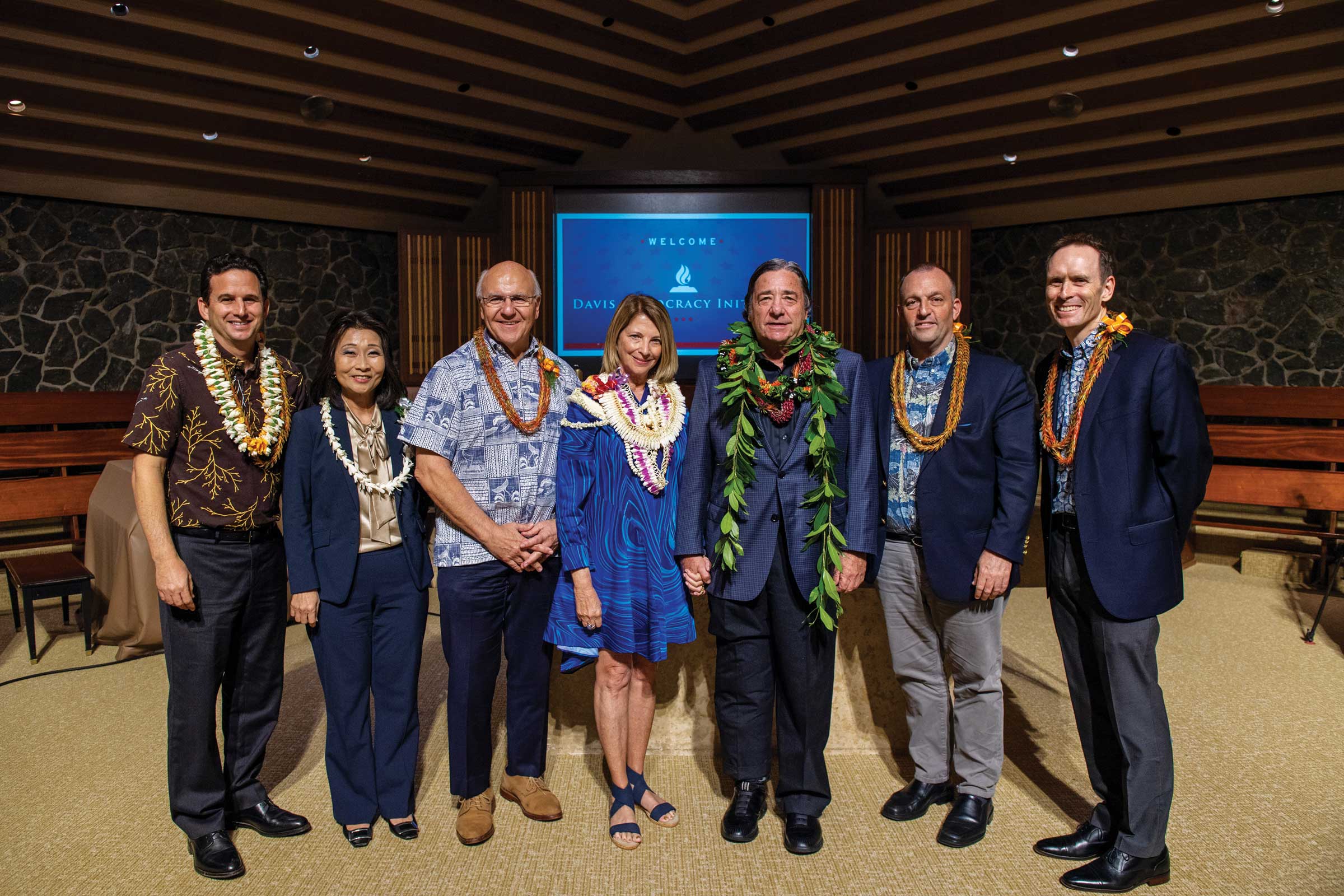
From left: U.S. Senator Brian Schatz ’90, Lieutenant Governor Sylvia Luke, Mayor Rick Blangiardi, Janie Davis, Mark Davis, Governor Josh Green, President Mike Latham ’86. Keynote speaker Senator Schatz lauded the program’s service component. Public service, he emphasized, is the source of “a more informed and compassionate citizenry, a more hopeful and engaged next generation and a stronger democracy.”


Above: Keith Hayashi, Superintendent of Hawai‘i State Department of Education talked with David Ball, Academy English faculty and Davis Democracy program coordinator. Hayashi looks forward to partnering with Punahou. The Initiative will bring opportunities for public school students and teachers to “build common understanding and a strong future for Hawai‘i’s students,” he said.

The Initiative Encompasses Four Areas:
The Davis Democracy Fellows Program will connect high school students to internships and service placements in governmental agencies and nonprofit organizations. Upon completing selected courses, students employ their learning within a professional setting. They may become involved in crafting legislation, submitting testimony and meeting with legislators, gaining ground-level insight into how civics works. Fellows would ideally also publish an independent project that synthesizes and summarizes their learning in a publicly shared forum. The program will extend beyond Punahou, including students from other public and independent schools. “Our students learn and grow much more when they’re in contact with kids from other schools who have different perspectives or experiences,” Latham explained.
Davis Democracy Lectures, an annual slate of public presentations by visiting policy makers, activists and scholars, which explore vexing societal issues. During their residencies, scholars visit classrooms and conduct teacher seminars, offering students a model of civic discourse and providing teachers with essential pedagogical enrichment.
External Partnerships and Events. The School is solidifying partnerships with institutions such as the Hawai‘i State Department of Education (DOE), University of Hawai‘i’s Richardson School of Law and the Hawai‘i State Judiciary, which extend the program’s reach. Recently, representatives from Richardson School of Law, Hawai‘i Pacific University and Kamehameha Schools joined for a provocative public roundtable discussion on the future of affirmative action. The strategic decision to foster external partnerships has already scored a major win; Jeff Chang’s successful residency was co-sponsored with Hanahau‘oli School.
K — 12 Initiatives throughout the School Community encourage collaboration among Academy and Junior School students and faculty. It’s envisioned that Democracy Fellows can support the peer-to-peer teaching of civics to their Junior School counterparts, and that teachers will have professional development opportunities to coordinate a K – 12 approach to civics education.
“We’re building this Initiative from the ground up with what’s already working well in our curriculum,” explained Program Coordinator David Ball, an Academy English faculty member. “This is about teaching students how to become involved, not what to become involved in,” he noted, emphasizing the program’s nonpartisan nature. Research shows the earlier that students become involved in civics, the more long-lasting the effects, said Junior School Principal Todd Chow-Hoy, “so the earliest grades are where we can have the greatest impact.”
Chang’s visit is emblematic of the type of dynamic learning experiences that will emerge from the Davis Initiative – its impact has already yielded gains. In preparation for his arrival, fourth-grade teachers Jess Kelly and Shelly Yoshikawa and Chloe Thurston and Rachel Moriyama ’06 Navarro from the Academy discovered fertile areas of overlap between their respective curricula.
Fourth graders were studying Native American history through the lens of a sense of belonging while ninth graders in Global Sustainability by Design had just finished reading “Moloka‘i,” a novel depicting the brutal removal of Hawaiians with Hansen’s Disease from their families. “The absence of belonging in those two communities was the connection that we’ve created,” Thurston explained.
This intellectual exchange also inspired students to make their own connections. “I learned that stories have lots of different forms and that when people come together, they can make something new that will positively affect things,” said Evan Kang ’31. Meanwhile, Danica Shiroma ’31 observed that “when President Andrew Jackson kicked the Native Americans out of their homeland, he didn’t think about what they were feeling. It’s important to understand other people’s perspective.”
Teacher Jess Kelly touted the value of the overall experience – and the powerful stories that will emanate, “Our students see that belonging isn’t just something we’re talking about in fourth grade, but it’s happening in ninth grade and, as Jeff Chang pointed out, it’s happening in the world.”

“It is a transformational initiative, so we were able to look up and out over the next quarter century at the challenging realities our kids are facing, and we saw that it‘s imperative that our K – 12 community understands how the law works, how democracy works and how to engage in civil discourse.”
- Noelehua Lyons ’91 Archambault,
vice president for Institutional Advancement
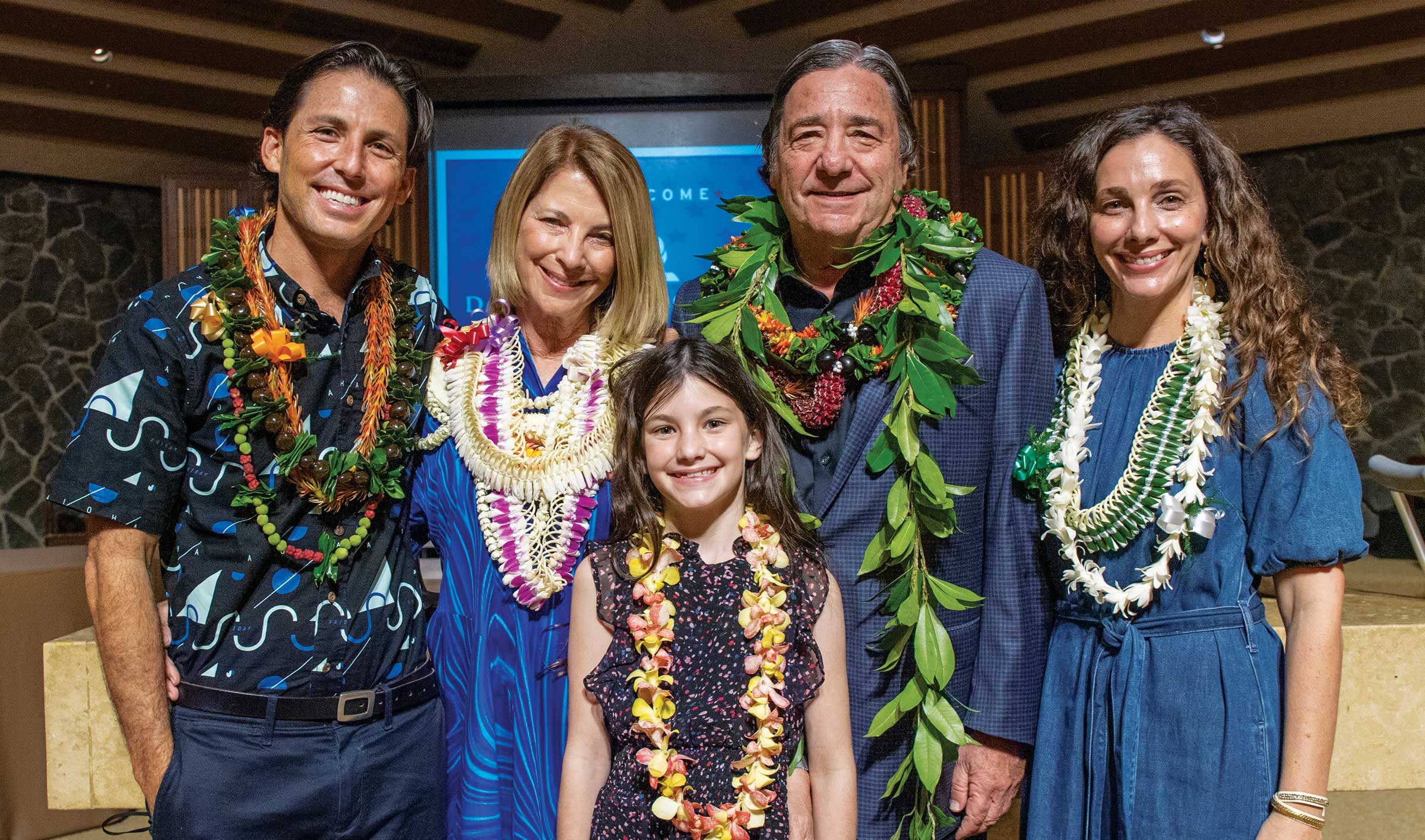
Mark and Janie Davis
When Mark and Janie Davis moved to Hawai‘i in 1974 – he was a young civil rights attorney, she, a graduate student in social work – they shared a deep interest in both education and civic engagement. Nearly half a century later, amid the pandemic lockdown, the couple began envisioning a program that could advance both priorities, and they decided to approach the School. “Punahou was always a big part of our life,” Janie explained. Their daughters, Erin ’99 and Rebecca ’01, started in kindergarten while Janie served as room parent and on the PFA Board.
The Davis Democracy Initiative took shape over three years around a resolute goal. “We wanted it to be a community enterprise, not just one school doing one thing,” said Mark Davis, a founding partner of Honolulu law firm Davis, Levin, Livingston and a former member of the national board of directors of the American Civil Liberties Union. The Davises recognized Punahou’s capacity to convene multiple stakeholders and to design a curriculum that would benefit students at Punahou as well as other schools.
“It is a transformational initiative,” said Noelehua Lyons ’91 Archambault, vice president for Institutional Advancement at Punahou, of the Davis’ $2.5 million gift. It also came at an opportune time when the School was in the midst of revising its mission statement. “So we were able to look up and out over the next quarter century at the challenging realities our kids are facing,” explained Archambault. “And we saw that it’s imperative that our K – 12 community understands how the law works, how democracy works and how to engage in civil discourse.”
The Davises look forward to seeing the program and its participants grow and blossom. “You can never predict how this might impact a student and what they might become,” said Mark. “We have many examples of people who are deeply civilly engaged and changing the world. And if we look back at this program in 20 years, maybe that’s what we’ll see.”

Student Voices for Democracy

Chloe Devere ’23
Chloe Devere’s passion for social justice was ignited when she delivered a Damon Speech on the rise of anti-Semitism in America in eighth grade. But it wasn’t until a Senior Capstone course took her to El Paso, Texas, to study immigration at the U.S., border, that she saw up close how people’s lives can be shattered by deep-seated inequities in the justice system. In El Paso, she spoke with Border Patrol agents, Immigration Court judges, nonprofit leaders and immigrants seeking asylum. “Hearing from the immigrants themselves and seeing the emotion on their faces gave me such a unique take on the immigration crisis and the issues,” she said. “It left such a powerful impact on me.”
That impact has shaped Chloe’s current internship with U.S. Sen. Brian Schatz ’90, where she’s helping develop an action plan for immigrants in Hawai‘i. She’s one of the office’s 15 high school interns, representing different Hawai‘i schools and islands. “We help the office explore topics and issues that we’re passionate about,” explained the Varsity Tennis player and co-leader of Punahou’s Jewish Culture Club.
Chloe, who introduced Sen. Schatz at the Initiative’s launch, is thrilled by the program’s emphasis on civic engagement. “The more you can inspire kids from an early age to begin to take action, the better,” she said. “You’re never too young to be inspired to care about democracy and to have your voice heard.”
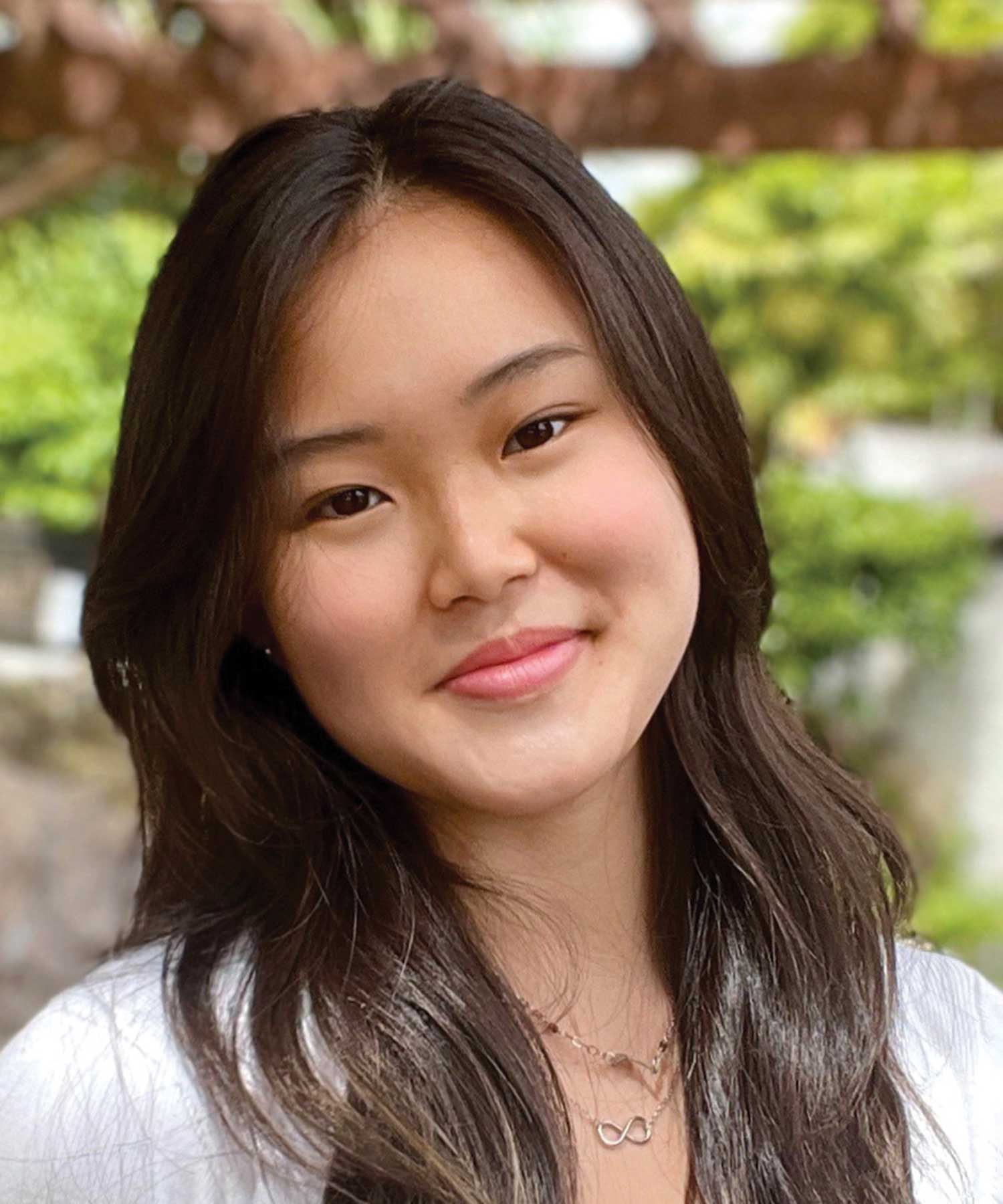
Zoey Duan ’22
Growing up in an immigrant, low-income Honolulu neighborhood, Zoey Duan ’22 was highly attuned to her community’s needs. At 14, she began testifying at the Hawai‘i State Legislature for the Coalition for a Tobacco-Free Hawai‘i (CTFH), because she saw the devastating effects tobacco had on her family and within her public school. Public advocacy gave her both voice and purpose.
Entering Punahou in ninth grade, Zoey found teachers that encouraged her. Bonnie Christensen inspired her to focus on government and politics while Michael Georgi’s Contemporary Issues class challenged her to view matters from a global perspective. “Those classes really helped shape my path,” the Yale freshman acknowledged. Zoey joined CTFH’s State Youth Council, advocated for a Honolulu City & County Youth Commission to expand youth representation, and served as President Pro Tempore of Hawai‘i Girls State, a leadership program for rising seniors.
When the pandemic struck, Zoey and Ellie Ochiai ’22 co-founded HawaiiVAXHelp, a hotline that provided free information and resources to low-income, linguistically challenged and/or rural communities across the state. HawaiiVAXHelp enabled hundreds of residents to receive their COVID-19 vaccinations. Punahou recognized her outstanding work with a Distinction in Civic Education award.
Zoey encouraged young students to become involved in issues they care about. “Get your friends to help you, because none of the things I did was done on my own,” she said. She also urged perseverance, saying, “You have to have the resilience to keep fighting, because if you give up, nothing gets done.”

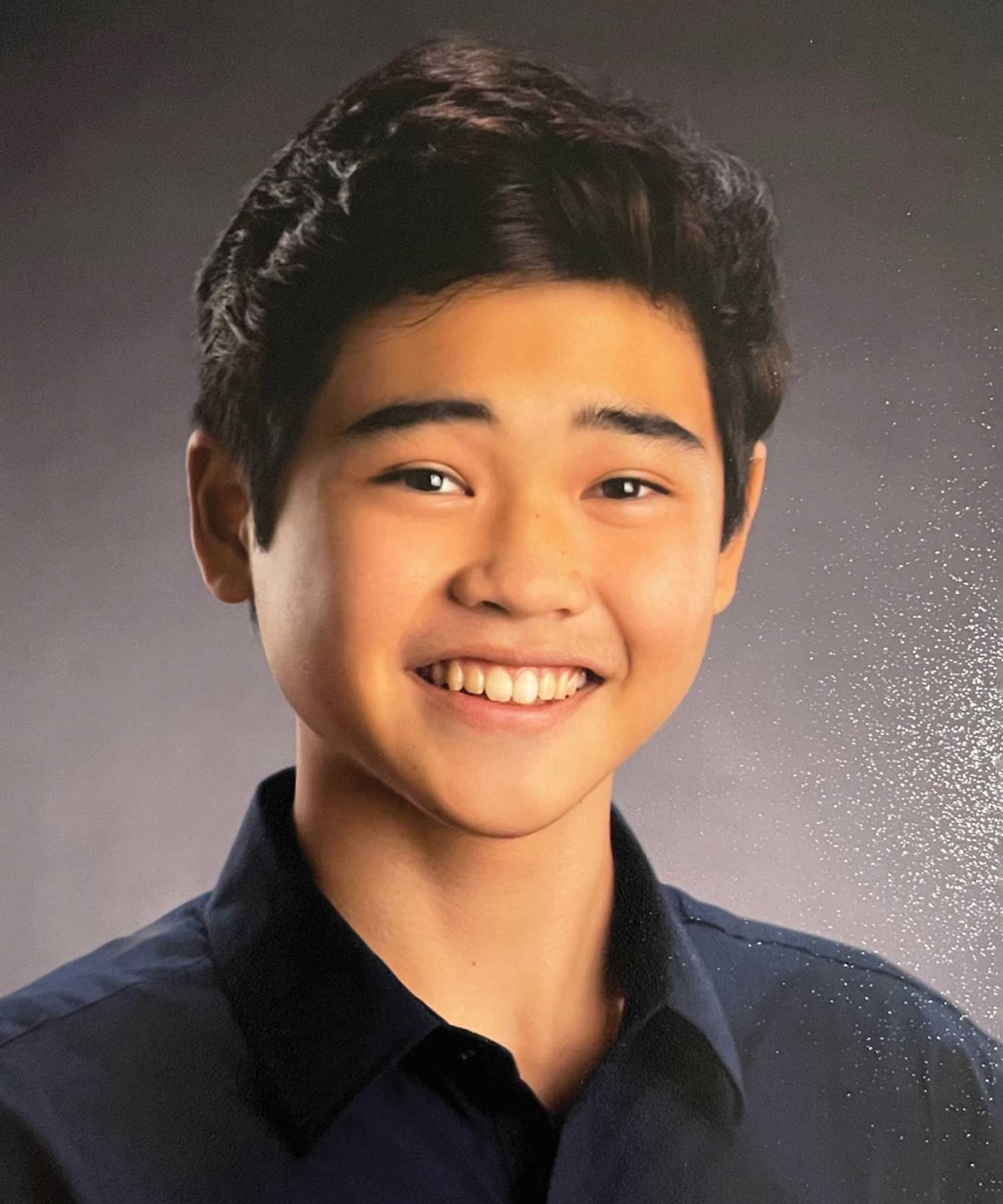
Logan Yogi ’22
Logan Yogi ’22 embraced public service and community action from an early age. In ninth grade, partnering with the Institute for Human Services, the ebullient teen initiated a school club drive to deliver shoeboxes stuffed with toys, games and school supplies to kids living in O‘ahu shelters. Last summer, through Hawai‘i State Youth Commission, he led a campaign to give $6,000 in school supplies to children and youth residing in Pu‘uhonua O Wai‘anae, a community of 250 unhoused people on O‘ahu’s westside.
Logan credited the Luke Center for Public Service for helping implement his ideas. Laura Chang-Blust, Academy Chinese language teacher, also challenged him to collaborate. “She really helped me realize that I need to be working with other people to accomplish things,” he said.
He’s doing just that now. As vice chair of Hawai‘i State Youth Commission, comprised of 15 representatives from across Hawai‘i, Logan organizes the Commission’s legislative agenda. “Our job is to advise the governor on legislative priorities and policies related to youth in Hawai‘i,” he explained. A key part of preparation is speaking with communities to gauge what youth care about. During the session, commission members write testimony, convene with legislators and track bills through their respective committees. Logan received a Distinction in Civic Education from Punahou for his commitment to community issues that shape American democracy.
The Creighton University freshman and self-described “history nerd” plans to major in economics and history. He knows that whatever he does in the future will involve connecting with others from diverse backgrounds. “Despite our differences, we’re all reaching for the same goal – to better this place that we live in,” he said.
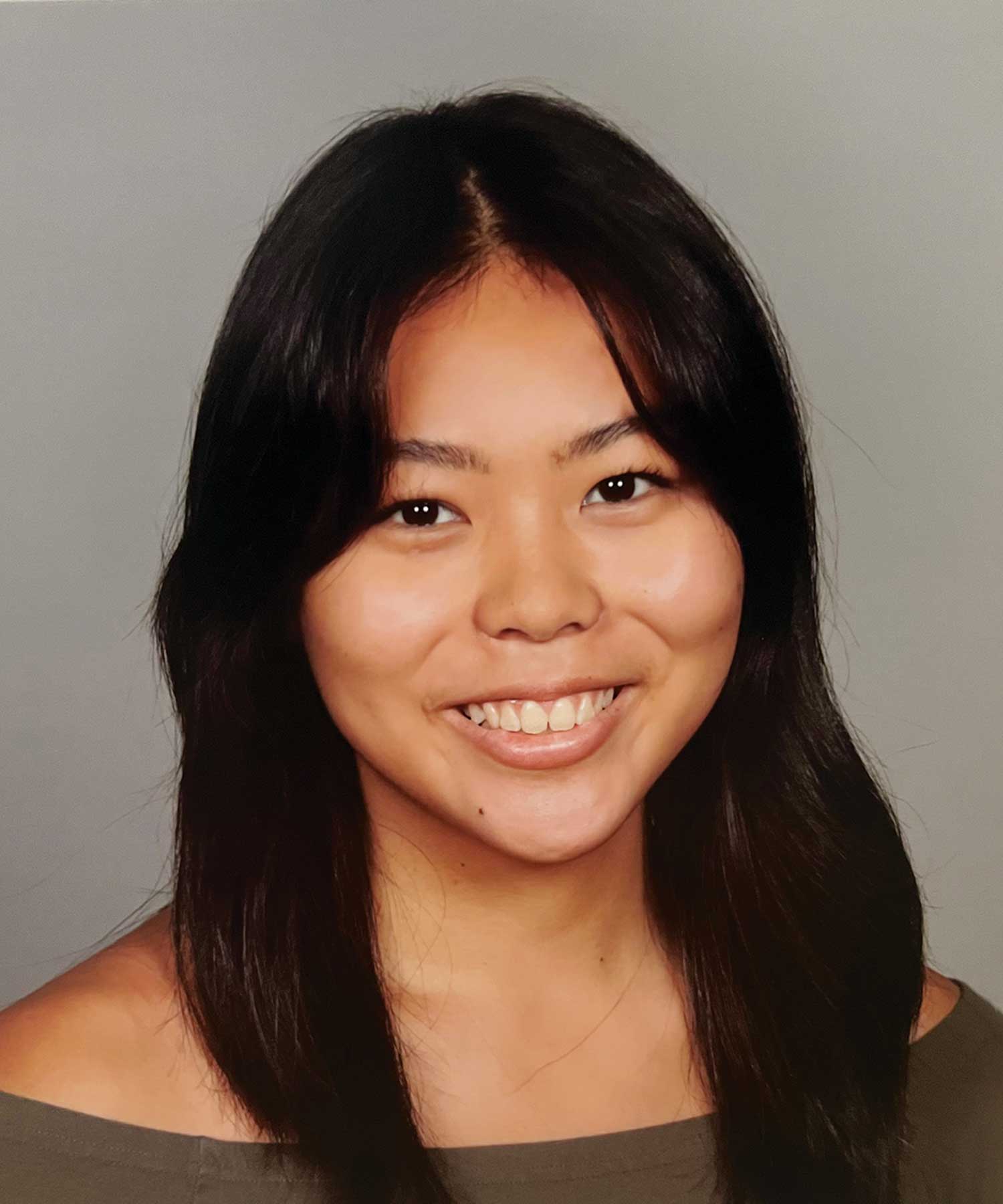
Mira Fujii ’24
Last summer, Mira Fujii ’24 was among 31 high school students from across the country invited to attend a University of Chicago program on freedom of expression. There, she was surprised to learn about the level of censorship experienced by her peers. “There was a lot of censorship from school principals on student speech,” she explained. The rising junior came away convinced that schools needed to encourage thoughtful debate and discussion on issues of concern to students.
Free speech captured Mira’s interest in ninth and tenth grade, when she took classes with Michael Georgi and David Ball, in social studies and English, respectively. In their classes, she was asked to weigh the extent to which speech can be censored. “It forced me to realize that if you censor one group’s free speech, you have to censor everyone’s,” she said. “I had to think about listening to other people’s ideas and consider them more thoroughly. I had to think about my own beliefs.”
In March, Mira introduced Punahou’s roundtable discussion on “The Future of Affirmative Action,” presented during Jeff Chang’s residency. She’s excited by the Initiative’s goal to reach a broader range of students and plans to assist in that effort. “The Davis Democracy Initiative has opened the gates at Punahou to include anyone interested in becoming more involved in their civic duties,” Mira said. “This is something I’m really passionate about.”
